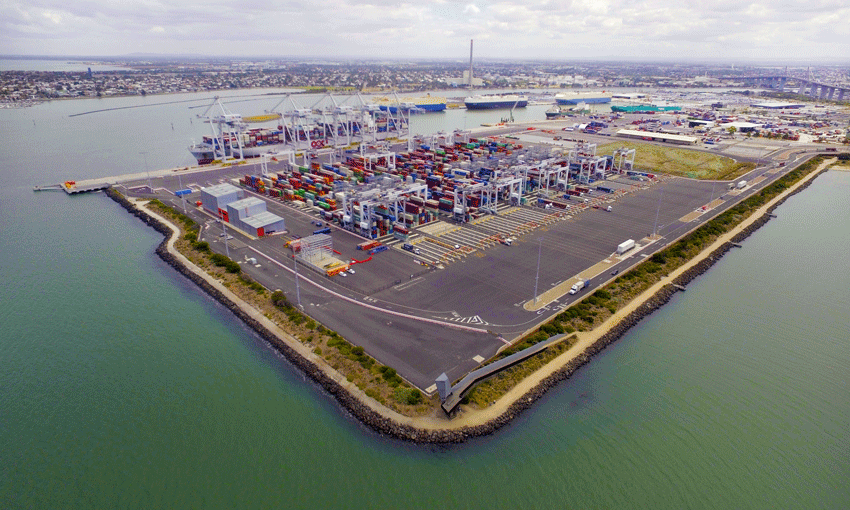VICTORIA International Container Terminal is increasing its infrastructure charge by 8.2% for full export and import containers, bringing it to $141.80.
The terminal is also reintroducing a “stack run in slot (empty)” fee of $12.50 per container, and it is introducing a “premium slot fee” of $109.50.
In a notice to customers about the premium slot fee, VICT said over the past 12 months there had been an increase in requests for last-minute slots, especially around export cut-off and import last free days.
“This has caused the system to be under extreme pressure and challenging to maintain our service level for those customers who’ve planned in advance,” the notice reads.
“To discourage the use of last-minute slot requests and discourage some customers’ reliance on them, VICT will be implementing a premium slot fee for slots issued over and above our regular allocations.”
The premium slots will be issued at VICT’s discretion and are not guaranteed by request. VICT said if a customer fails to arrive for a premium slot, the charges will still apply.
The terminal said the increase in its infrastructure charge is to recover its “increased infrastructure cost and landside systems investments”.
“The revised charge is a direct pass-through to our customers to recover the ongoing costs,” the notice reads.
“Throughout the last 12 months, VICT continues to deliver for our landside customers an average of sub-35-minute gate to gate truck turn time.”
The Container Transport Alliance Australia has called on VICT to think again about the premium slot fee, objecting “strenuously” to the implementation of the fee, which is significantly greater than the normal slot fee of $18.25.
CTAA director Neil Chambers said the language used by VICT to justify such a fee makes it seem as though the terminal “wants to punish transport operators, and in turn their import and export customers, rather than work through the issues collaboratively as to why such additional slot requests may be on the rise”.
“CTAA would observe that we’ve been through an unprecedented surge in full container import volumes over the last year, and vessel schedules have chopped and changed frequently, causing significant disruption to export receival timings,” Mr Chambers said.
“CTAA would also contend that slot requests outside of the normal slot drop allocation are symptomatic of the way in which VICT operates its automated stacking crane (ASC) terminal operation.
“Unlike the straddle carrier operations at the rival stevedore terminals in Melbourne, an import slot can only be booked at VICT once the position of the import container in the ASC block is known after discharge from the vessel, and the slot is specific to that block location.”
Mr Chambers said vessel berthing schedules at VICT frequently mean that transport operators trying to book last free day import container pick-ups from one vessel are competing for slots with transport operators desperate to meet their customers’ delivery demands as soon as the import container’s block position is known following discharge from another vessel.
“Transport operators have no visibility of the number of slots dropped into the 1-Stop VBS by VICT each day. However, relatively frequently, transport operators are unable to obtain VBS slots because the normal allocation is exhausted. Many may question whether the high premium slot price might encourage profiteering by VICT,” Mr Chambers said.
“From an export perspective, this last year has seen many changes to port rotations with vessels calling Melbourne ahead of Sydney or another port. When this happens, export receival dates are brought forward, frequently stretching export supply chains to meet revised vessel export receival cut-off times.”
Mr Chambers said transport operators are sympathetic to the fact that VICT has a challenging task in balancing its normal import and export slot allocations each day, which is made harder by the growing container throughput volumes.
“However, the transport management task and the supply chains they service are equally as challenging,” he said.
“Instead of seeking to punish transport operators and their import and export customers through the imposition of a draconian fee, we’d look to VICT to engage with the landside sector to comprehensively address the issues that may be contributing to last-minute vehicle booking system slot requests.”
Mr Chambers said CTAA is writing formally to VICT under the Victorian government’s Voluntary Pricing Protocols process seeking the withdrawal of the premium slot fee.

